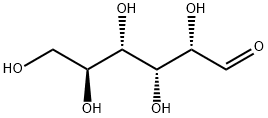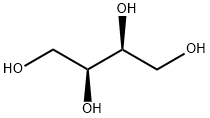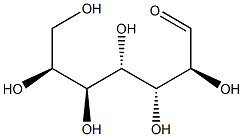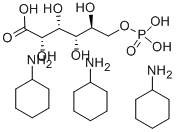PRODUCT Properties
| Melting point: | 153-156 °C(lit.) |
| Boiling point: | 232.96°C (rough estimate) |
| Density | 1.2805 (rough estimate) |
| refractive index | -52 ° (C=5, H2O) |
| storage temp. | 2-8°C |
| solubility | H2O: 0.1 g/mL, clear, colorless |
| form | aqueous ethanol solution |
| pka | 12.45±0.20(Predicted) |
| color | White |
| Water Solubility | Soluble in water, alcohol. |
| Merck | 14,4459 |
| BRN | 1724626 |
| Stability: | Stable. Combustible. Incompatible with strong oxidizing agents. |
| InChIKey | WQZGKKKJIJFFOK-UZJJNQGWSA-N |
| LogP | -3.170 (est) |
| CAS DataBase Reference | 921-60-8(CAS DataBase Reference) |
Description and Uses
L-(−)-Glucose is an enantiomer of the more common D-glucose. L-Glucose is not bioavailable to cells as an energy source because it cannot be phosphorylated by hexokinase. However, certain L-glucose-utilizing bacteria that contain NAD+-dependent L-glucose dehydrogenases capable of oxidizing L-glucose have been identified.
L-(-)-Glucose is an enantiomer of the more common D-glucose a naturally occurring carbohydrate used in an abundance of cellular processes. L-Glucose is a synthetic sugar used in the formation of L-Glucose Pen taacetate, a potential therapeutic agent regarding type II diabetes. In addition, L-glucose can be used as a colon cleansing agent for before a colonoscopy procedure.
Safety
| Symbol(GHS) |  GHS07 |
| Signal word | Warning |
| Hazard statements | H227 |
| Precautionary statements | P501-P210-P280-P370+P378-P403+P235 |
| Hazard Codes | F,Xi,R,Xn |
| Risk Statements | 11-36/37/38-63-62-46-36/38-21 |
| Safety Statements | 16-26-36-53-36/37-25 |
| RIDADR | UN 2910 7 |
| WGK Germany | 3 |
| RTECS | LZ6610000 |
| F | 3 |
| HS Code | 17023051 |






